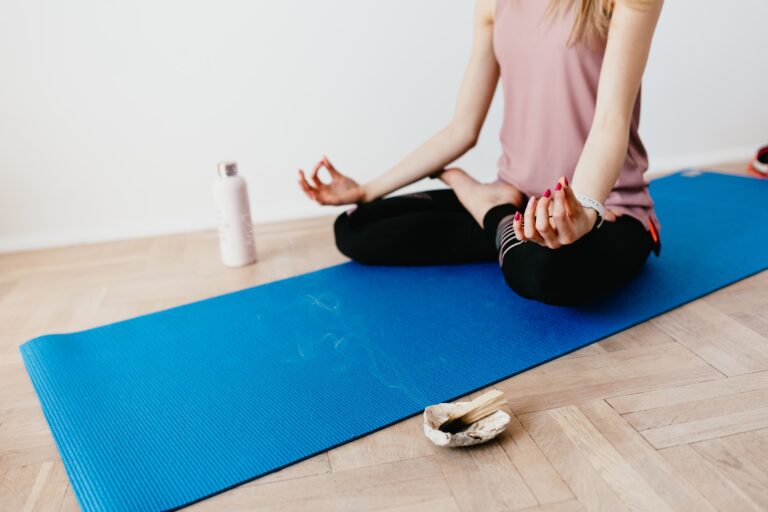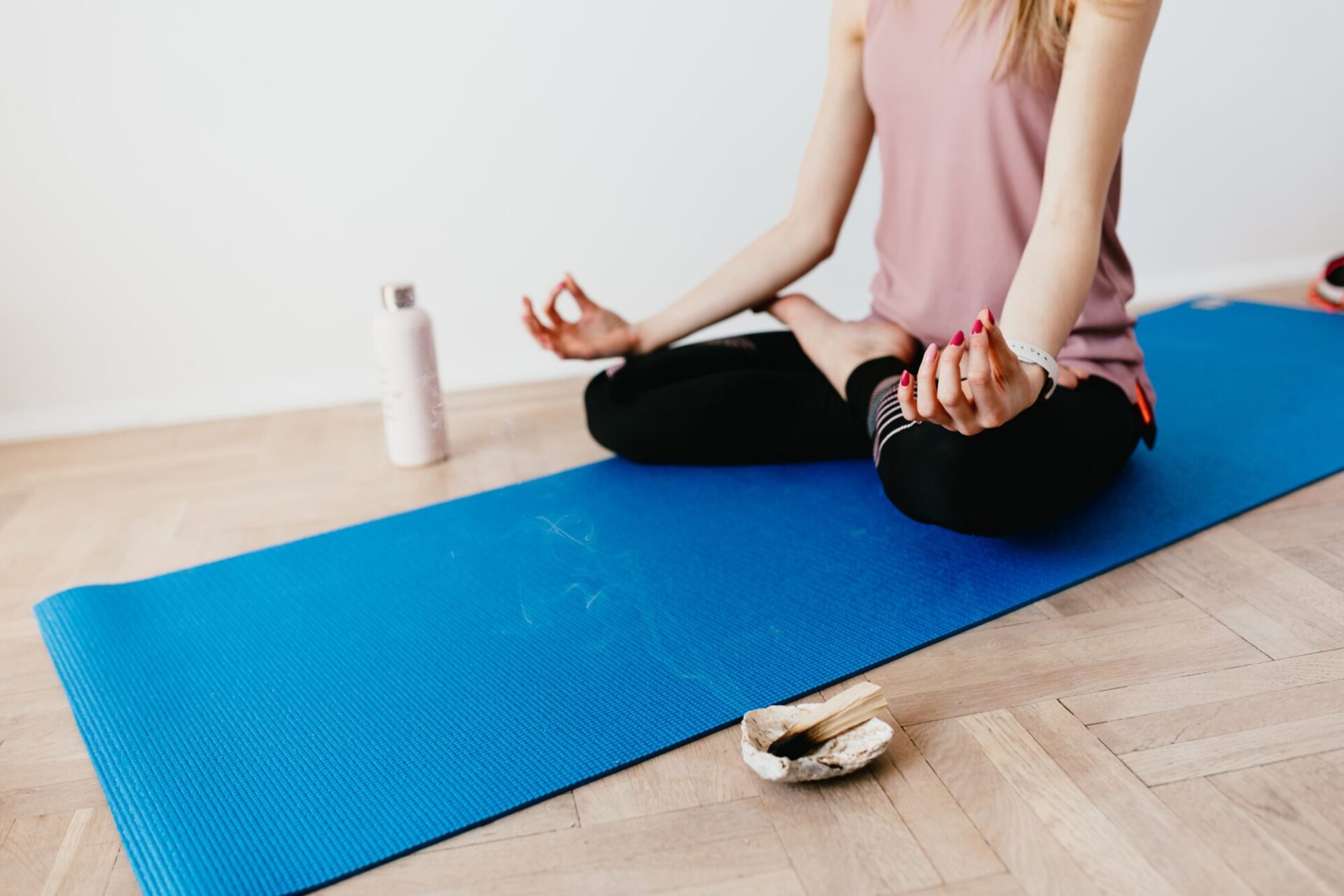

How to use mindfulness to reduce stress?
How to declutter your mind and reduce stress with mindfulness? Do you often feel overwhelmed by the thoughts and worries in your mind? How about finding yourself replaying the same events or scenarios, creating more anxiety and stress? If so, you may be experiencing rumination, a mental habit affecting your health.
Rumination is the process of dwelling on past or future problems without finding solutions or taking action. It can meddle with your capacity to concentrate, unwind, rest, and enjoy the present moment. Moreover, it can also trigger your stress response to chronic anxiety and various soundness issues.


Fortunately, there are ways to declutter your mind and reduce stress by becoming more mindful and aware of your thoughts. Mindfulness is paying attention to the present moment without judgment or criticism. Indeed, it can help you break free from rumination and cultivate a more positive and peaceful mind.
This article will explain rumination and how it affects your health. Also, we will share ten practical tips to declutter your mind and reduce stress with mindfulness. These tips can clear your mind of unnecessary clutter, focus on what matters, and enjoy a more peaceful and fulfilling life.
First, get active.
Physical activity can help you release tension, improve mood, and distract you from negative thoughts. In addition, it can boost your cognitive function. So, choose an activity that you enjoy that suits your fitness level, such as walking, jogging, cycling, swimming, dancing, or yoga.


Second, breathe.
Deep breathing is an easy yet practical technique to clear your mind, induce tranquility, and elevate your mood. It also lowers the heart rate and blood pressure and stimulates the parasympathetic nervous system, helping your body relax. To practice deep breathing, first, inhale slowly through your nose. Next, fill your lungs with air and slowly exhale through your mouth, emptying your lungs. Repeat this for a few minutes, focusing on your breath.


Third, listen to music.
Music can have a powerful impact on your emotions and brain activity. Besides, it can help you relax, uplift your mood, enhance creativity, and reduce pain. Choose music that matches your desired state of mind, such as soothing classical music for relaxation or upbeat pop music for motivation.


Fourth, use aromatherapy.
Aromatherapy is natural oils extracted from plants to enhance physical and mental well-being. Different scents can affect mood, memory, alertness, and stress levels. For example, lavender can promote calmness and sleep quality, while peppermint can boost energy and concentration. In addition, you can use aromatherapy by diffusing oils in a room, applying them to your skin (diluted with a carrier oil), or inhaling them directly from a bottle or a tissue.


Fifth, look at the bright side.
One way to declutter your mind is to replace negative thoughts with positive ones. It can support you in managing stress, improve your self-esteem, and increase your happiness. To practice positive thinking, try to find something good in every situation. Also, express gratitude for what you have and compliment yourself and others. Furthermore, avoid self-criticism and blame.


Sixth, put down the coffee.
While caffeine can temporarily boost energy and alertness, it can also increase your anxiety, irritability, insomnia, and heart rate. Significantly, consuming too much caffeine or drinking late in the day can interfere with your ability to clear your mind and relax. Also, limit your coffee, tea, energy drinks, and other caffeinated beverages to no more than 400 mg daily (about four cups), and avoid them after 2 p.m.


Seventh, evaluate your life.
For example, you may have too many commitments that drain your time and energy or possessions that take up space and create messes. To declutter your life, you must prioritize what matters most to you, set boundaries with others, delegate or outsource tasks, and eliminate things you don’t need or use.


Eighth, learn to say “no.”
Another way to declutter your life is to say “no” to things that don’t align with your goals, values, and interests. Speaking “no” can help you free up time and energy for things that matter to you and reduce stress and resentment. Also, it can help you better respect yourself and your needs. To say “no” effectively, be polite but firm, explain your reasons briefly, and offer an alternative if possible.


Ninth, write it down.
Writing can be a great way to declutter your mind and organize your thoughts. In addition to this, it can help you express emotions, gain clarity, solve problems, and release stress. You can mainly write in a journal, notebook, computer, or napkin. Write about anything that comes to your mind, such as your feelings, thoughts, goals, plans, dreams, or memories. Also, use writing prompts or exercises to guide your writing process.


The tenth is to meditate.
Meditation is one of the most effective ways to declutter your mind and reduce stress. It can also help you cultivate mindfulness, awareness, and acceptance of the present moment. Additionally, it improves your mental and physical health. Also, it enhances mood, memory, attention, immune system, and sleep quality. To practice meditation, you need to find a comfortable and quiet place, sit or lie down with a straight spine, close your eyes or lower your look, and concentrate on your breath, a word, a sound, or a sensation. Whenever your mind roams, gently bring it back to your focus point. You can meditate for as long as you want, but even a few minutes can make a difference.


In conclusion, rumination is a mental habit that can clutter your mind and increase your stress levels. Also, it can impact your mind and physical health in many ways, impairing your focus, mood, sleep, and immune system.
Undoubtedly, to declutter your mind and reduce stress, you can practice mindfulness, paying attention to the present without judgment or criticism. Indeed, mindfulness can help you break free from rumination and cultivate a more positive and peaceful mind. We hope you found this article helpful. Thank you for reading, and see you at the next one!
References:
Scott, E. 2021, December 4. How to clear your mind for reduced stress. Verywell Mind. https://www.verywellmind.com/how-can-i-clear-my-mind-3144602
How decluttering can reduce stress and improve focus. 2021, October 25. WebMD. https://www.webmd.com/mental-health/mental-health-benefits-of-decluttering
Azish, N. 2017, November 20. How to declutter your mind: 10 practical tips you’ll want to try. Forbes. https://www.forbes.com/sites/nomanazish/2017/11/19/how-to-declutter-your-mind-10-practical-tips-youll-actually-want-to-try/
Smith, E. E., & Alloy, L. B. 2016, April 20. Rumination: A problem in anxiety and depression. Psychology Today. https://www.psychologytoday.com/us/blog/depression-management-techniques/201604/rumination-problem-in-anxiety-and-depression




